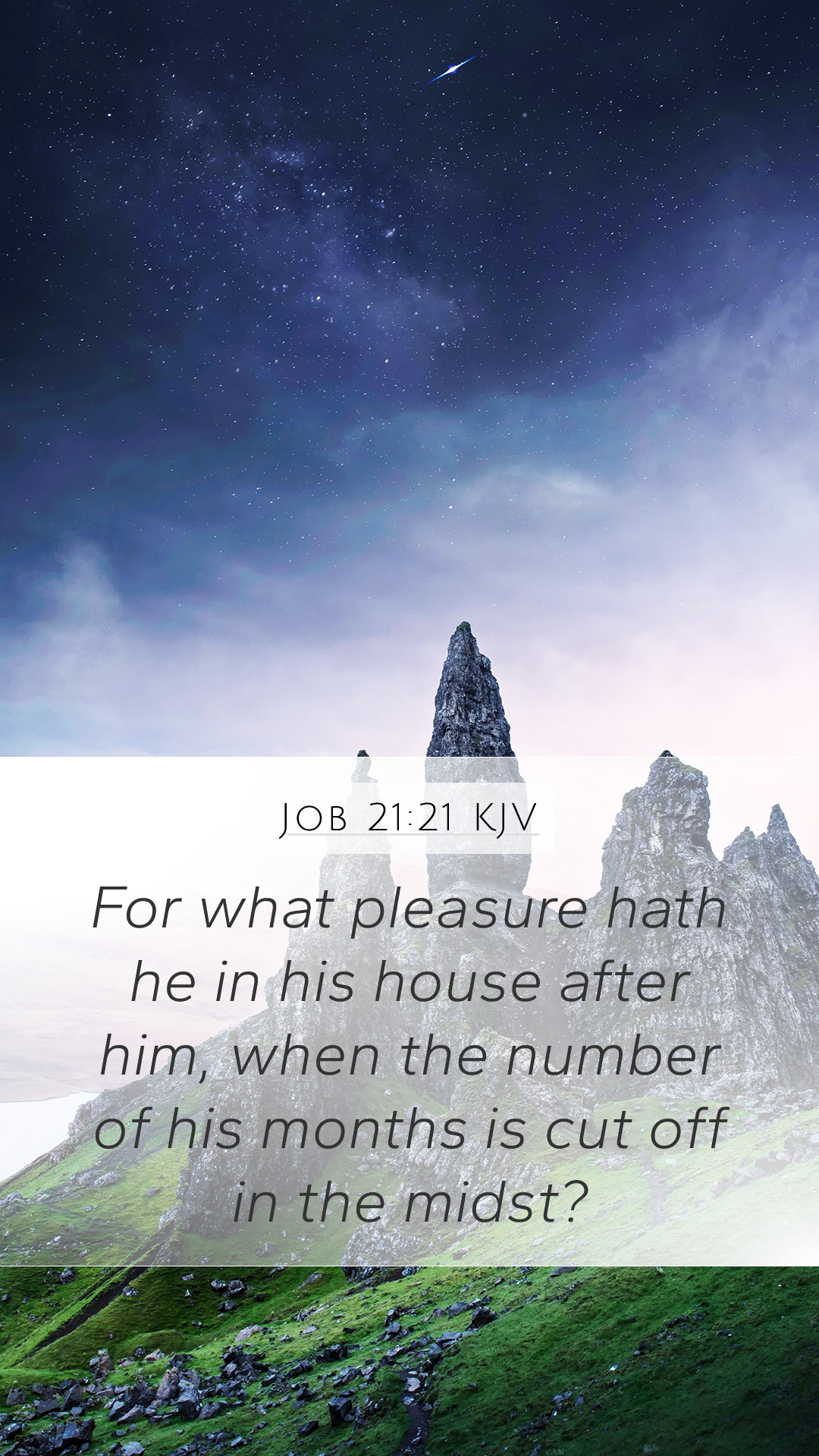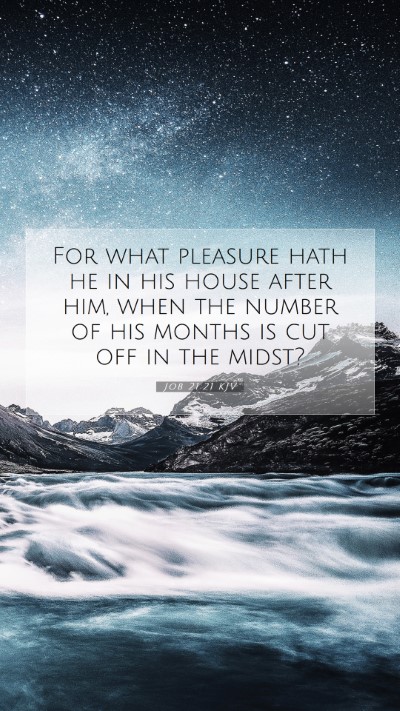Understanding Job 21:21 - A Comprehensive Bible Verse Commentary
Job 21:21 states: "For what is our lot from God above, our heritage from the Almighty on high?" This verse encapsulates Job's profound contemplation on the fate of the wicked versus the righteous.
Context and Overview
In the context of the Book of Job, this verse emerges during Job's discourse on the prosperity of the wicked. Job grapples with the apparent injustice in the world, where wicked individuals often seem to thrive and live comfortably, while he, who is righteous, suffers immensely.
Commentary Insights
-
Matthew Henry's Commentary:
Matthew Henry emphasizes the stark contrast between worldly prosperity and spiritual standing. He argues that earthly inheritance does not equate to divine blessing, suggesting that those who accumulate wealth and success without righteousness face spiritual peril.
-
Albert Barnes' Notes:
Albert Barnes elaborates on the essence of Job's observation—he questions the value of a life devoted to righteousness if the wicked appear to escape divine justice. He notes that Job's inquiry into God's justice is pivotal for understanding the trials believers face.
-
Adam Clarke's Commentary:
Adam Clarke analyzes the term "heritage" and contrasts it with God's judgment. He suggests that Job’s statement serves as a reminder of the ultimate accountability every soul has before God, preparing for a future where divine justice will be fully realized.
Theological Implications
Job 21:21 raises significant theological questions about human suffering, divine justice, and the nature of God's blessings. It challenges readers to consider:
- How do we reconcile the suffering of the innocent with the apparent prosperity of the wicked?
- What is the true meaning of life's inheritance from God?
- In what ways can believers find hope amidst trials?
Cross References
This verse relates to several other Biblical passages that explore similar themes:
- Psalms 73:3-5 - Reflects on the prosperity of the wicked.
- Ecclesiastes 8:14 - Discusses the futility of righteousness in the face of evil's success.
- Isaiah 57:1-2 - Highlights the fate of the righteous and the wicked.
Application in Daily Life
For modern believers, Job 21:21 serves as an impetus to pursue a deeper understanding of Scripture, particularly in the context of suffering and justice. Whether in Bible study groups or personal reflection, this verse invites seekers to explore how God’s ways differ from human understanding. It emphasizes assurance that God's justice ultimately prevails, even if it seems delayed in the present.
Conclusion
In summary, understanding Job 21:21 involves a careful examination of its broader theological implications and personal applications. The insights from public domain commentaries invite deeper reflection on our perspectives regarding suffering, divine justice, and the true inheritance of believers from God.
Further Study
Engaging with this verse can be greatly enhanced through various bible study resources such as:
- Bible study guides focused on the Book of Job
- Online Bible study platforms for collaborative learning
- Books on Old Testament prophecy interpretations


